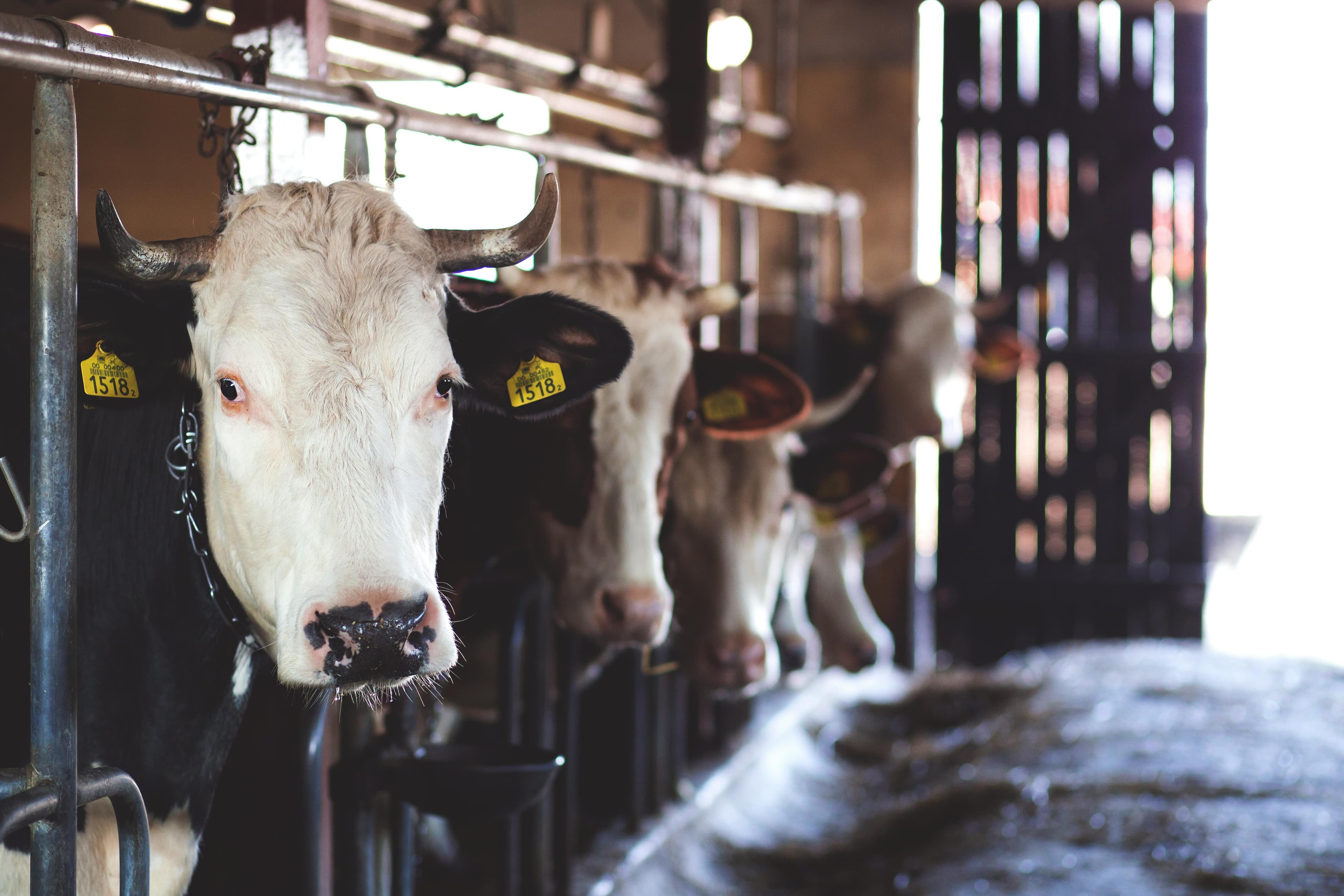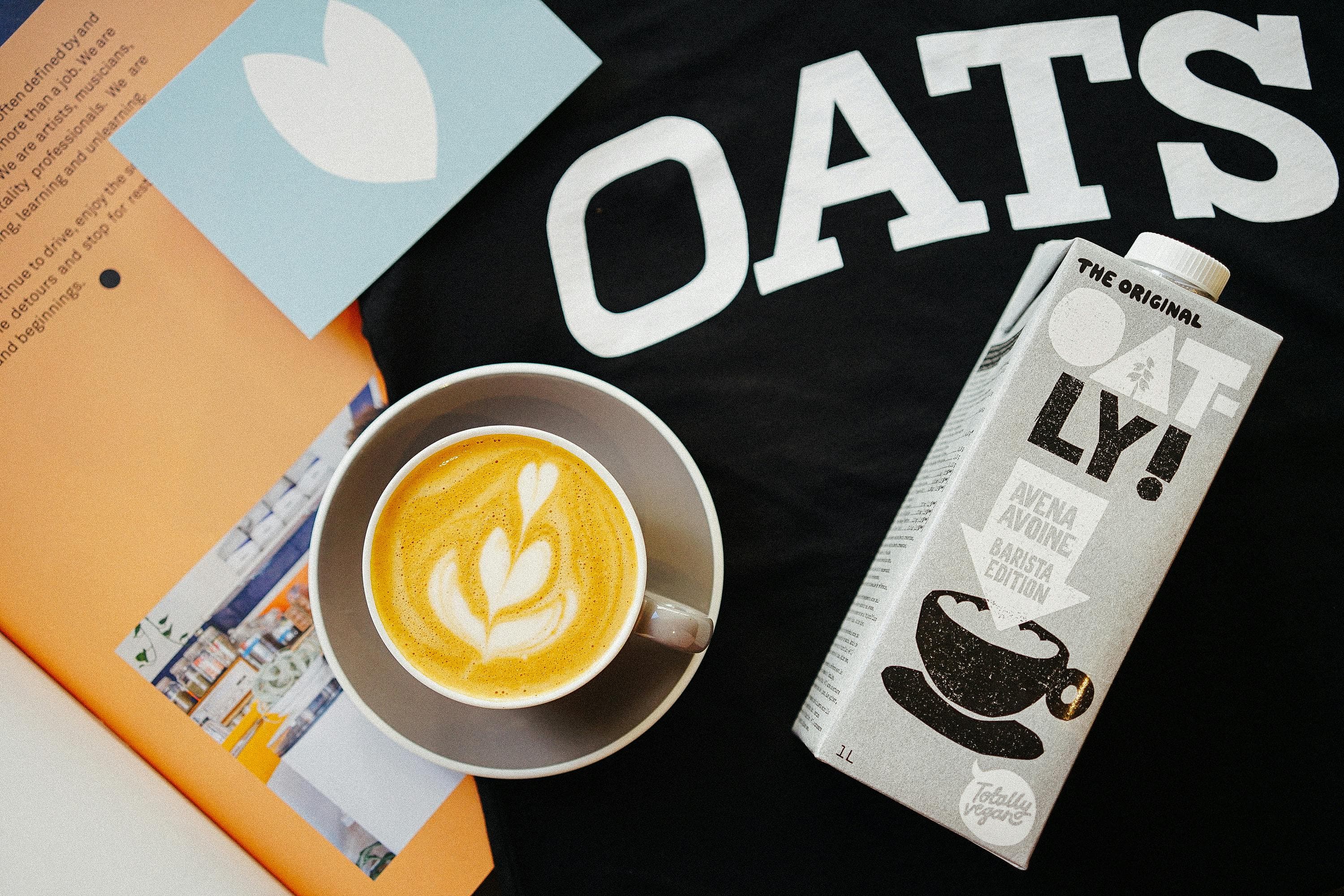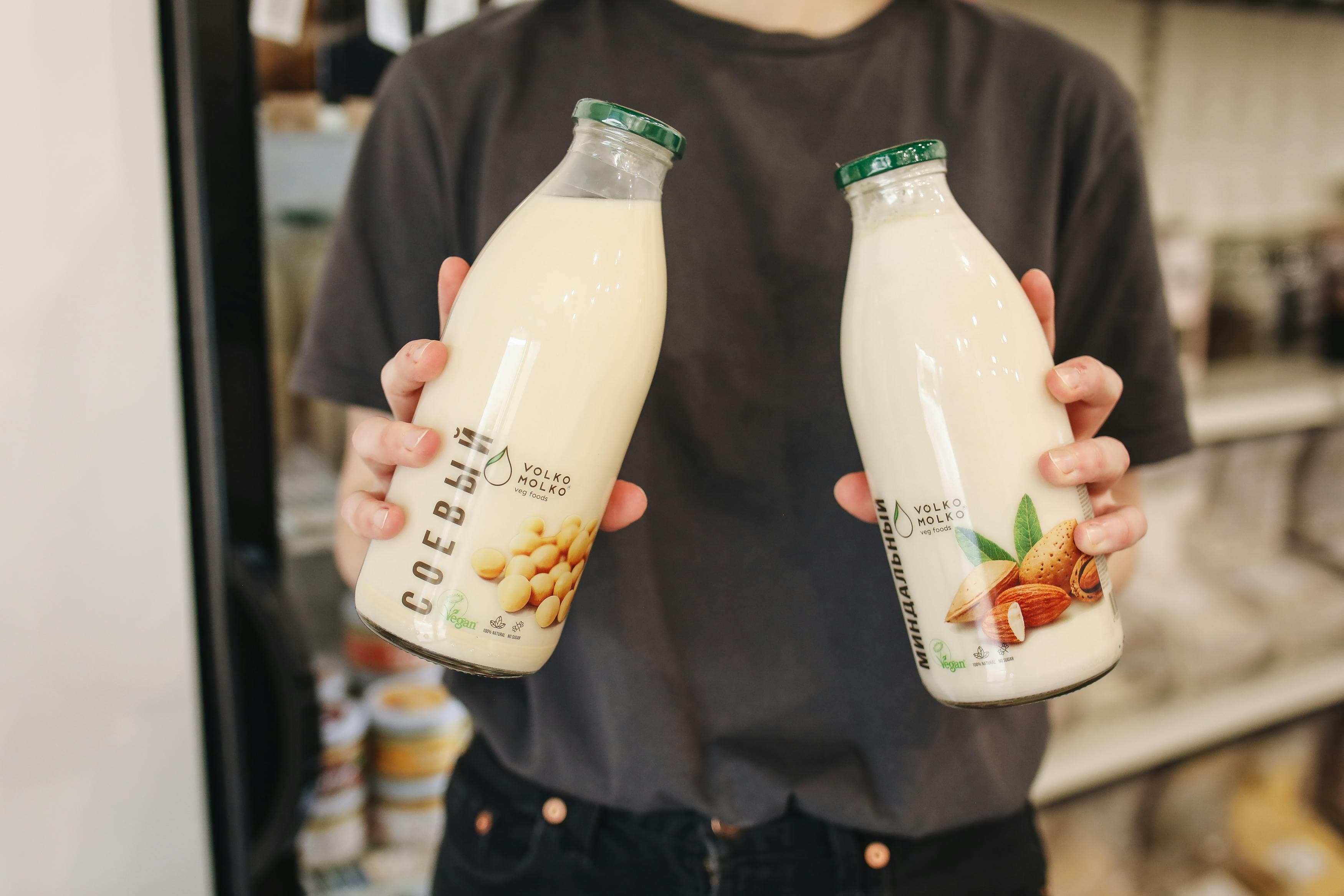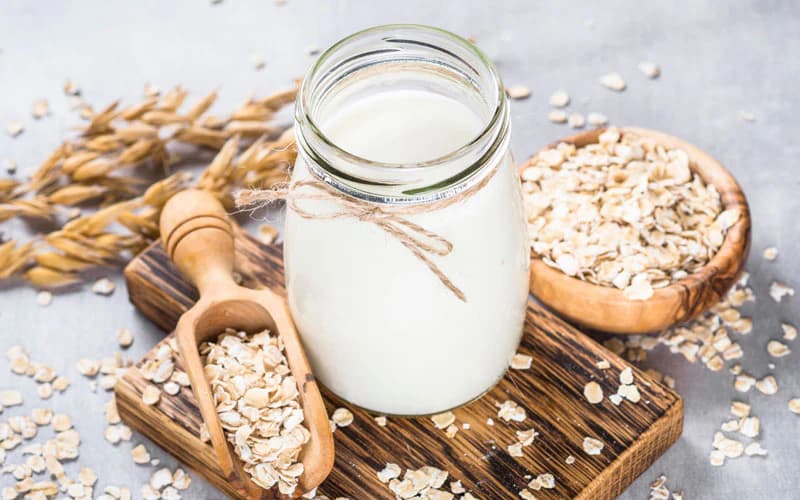Is plant-based milk healthier?
That’s the ultimate question for those seeking cruelty-free and healthier options to dairy

Is plant-based milk healthier?
That’s the ultimate question for those seeking cruelty-free and healthier options to dairy. Studies suggest that up to 68% of the world is lactose intolerant, meaning more than half of humans are unable to properly digest dairy due to lacking enough lactase enzymes in their gut microbiome.
And it makes perfect sense. Cow's milk is made for infant cows to drink, and humans typically wean off breast-milk after 2 years.
Today we will go over the negative impacts of animal-based dairy, and some healthier plant-based alternatives.

Negatives of milking animals
Cows in modern dairy farms are bred to produce far more milk than their ancestors, with some cows producing over 25 liters per day. This is because they have been steadily morphed by growth hormones and human tampering.
This high milk production puts a lot of stress on the cows' bodies, leading to health issues like lameness, mastitis, and reproductive problems. Most cows in dairy farms also live in inhumane conditions and tight spaces.
The environmental impact of dairy farming has also increased, with large farms producing significant amounts of manure and greenhouse gas emissions.
Some dairy farmers are exploring more sustainable and humane practices, such as grazing-based systems and selective breeding for healthier cows. However, the economic realities of modern industry make it difficult for many farmers to transition to these cleaner approaches.
Cows account for 30.6% of global human-made methane emissions, a major greenhouse gas that destroys the ozone layer protecting our planet from harmful space radiation. Dairy milk also has a much larger environmental impact than plant-based milk alternatives, requiring more resources to produce.

Lactose Intolerance
As stated before, many people in the world are lactose intolerant and cannot properly digest dairy, which can lead to digestive issues.
Animal-based milk is also acidic, and this can cause imbalance to the pH values of the digestive system. Too much acid in the gut can cause gastrointestinal problems and make digestion difficult.
Dairy milk is also high in saturated fat and sodium, increasing risks of cardiovascular disease and high blood pressure.

Weight Gain and Weak Bones
A single cup of whole milk contains around 180 calories, and overconsumption can contribute to excess calorie intake and weight gain.
Whole milk is high in saturated fat, which can raise levels of LDL (bad) cholesterol and increase the risk of heart disease.
Some research suggests a correlation between milk consumption in childhood and increased risk of adult bone fractures.

Hormonal Imbalance and Cancer
Due to genetic modifications and human tampering, cows in dairy farms produce milk that contains more hormones like estrogen and IGF-1, which can lead to hormonal imbalances and potentially increase the risk of certain cancers.
Due to higher estrogen content, drinking too much processed milk is known to cause gynecomastia (man-boobs) in men. Studies have also found that high levels of growth hormone IGF-1 in the blood has been linked to increased risk of skin, bone, prostate and breast cancer.

Kidney Stones
Excessive intake of calcium-rich foods, particularly dairy products like milk, can contribute to kidney stone formation by increasing calcium levels in the urine.
When calcium binds with oxalate or phosphate in the kidneys, it can form crystals that develop into stones over time. Too much dairy when paired with low water intake can lead to an increased risk of stone formation.
Counterintuitively, studies suggest that dietary calcium from whole foods may be less problematic than calcium supplements, which can spike calcium levels in the bloodstream more rapidly.
Additionally, certain lifestyle factors, such as excessive sodium intake, can worsen the issue by causing more calcium to be excreted through urine.
To lower the risk of kidney stones, experts say to drink enough water and eat calcium with foods that help reduce oxalate, like leafy greens and citrus fruits.

Switching to plant-based milk
Imagine your body feeling lighter, your digestion smoother, and your energy levels higher. This can be achieved by gradually shifting to plant-based milk.
The only downsides would be to your wallet. Due to production differences and lack of established companies engaging in plant-based milk, it still costs more than regular milk. However, expect the price gap to narrow as demand increases over the years.
We’ve listed 5 plant-based milk options, and how they stack up nutritionally.

1. Soy milk
Soy milk is nutritionally closest to cow’s milk, as soybeans are a rich source of complete protein and the milk is often fortified.
A 100g serving of unsweetened soy milk provides 38 calories, 3.5g protein, 1.3g carbs, and 2g fat, along with essential nutrients like vitamin B12, calcium, and riboflavin. It’s a great high-protein dairy alternative.
Research also suggests soy milk may help improve cholesterol and blood pressure, a step up from animal-based milk. Concerns about soy increasing breast cancer risk are largely unfounded, with studies indicating it may actually reduce the risk.
2. Almond milk
Almond milk is made by soaking, blending, and straining almonds, creating a dairy-free alternative. It also has a pleasant light taste.
A 100g serving of unsweetened almond milk provides 17 calories, 0.4g protein, 0.8g carbs, and 1.25g fat. It’s low in calories and carbs, making it a good option for those following low-carb diets.
However, almond milk is also low in protein and key nutrients, though many supermarket brands are fortified with calcium and vitamins A and D.
Important note: those with nut allergies should avoid this milk.

3. Coconut milk
Coconut milk is made by squeezing the white flesh of a coconut, offering a flavorful, dairy-free alternative that’s safe for those with tree nut allergies. Also a common ingredient in curry.
A 100g serving of unsweetened coconut milk provides 26 calories, 0g protein, 0g carbs, and 2g fat. Carton-packaged versions are blended with water for a milk-like consistency and are often fortified with vitamins B12, D, and A.
Canned coconut milk, used mainly for cooking, is higher in fat and unfortified. While coconut milk contains more fat than other plant-based options, its medium-chain triglycerides (MCTs) may support heart health by boosting HDL (good) cholesterol levels.

4. Oat milk
Oat milk, made by soaking whole oats, is a fast-growing dairy alternative, with sales increasing significantly in recent years. Its natural sweetness and creamy texture come from the oat grains.
A 100g serving of oat milk provides 50 calories, 1.25g protein, 7g carbs, 0.83g fiber, and 2g fat, along with high levels of vitamin B12, riboflavin, and calcium.
Rich in soluble fiber, oat milk helps slow digestion, keeping you full longer while stabilizing blood sugar and reducing cholesterol.
It also contains Avenanthramides (AVNs), compounds that may help combat inflammation, oxidative stress, and allergic responses.
5. Cashew milk
Cashew milk is packed with nutrients, including healthy fats, protein, vitamins, and minerals. Homemade versions are healthier than store bought ones.
A 100g serving of store bought cashew milk has 10g calories, 0.8g fat, 0.3g protein and 0.4g carbohydrates. Its unsaturated fats, potassium, and magnesium may boost heart health, while antioxidants like lutein and zeaxanthin support eye health and reduce the risk of age-related diseases.
Additionally, its vitamin K promotes proper blood clotting, and compounds in cashew milk may enhance blood sugar control, especially for those with diabetes.
Also rich in copper, cashew milk can promote skin health by boosting collagen production, and test-tube studies suggest it may have anticancer effects. Its antioxidants and zinc contribute to improved immune function, while its high iron content can help prevent iron-deficiency anemia.
Link to resources:
Is Dairy Farming Cruel to Cows?
Drinking too much milk? You may be at risk of these 11 side effects
Definition & Facts for Lactose Intolerance
Weaning: When and how to stop breastfeeding
Diet and Gynecomastia: Foods That Cause Man Breasts